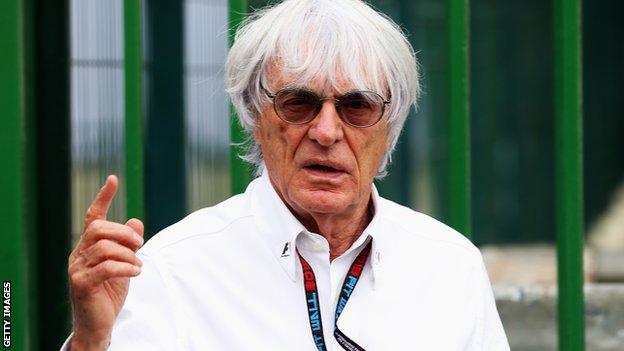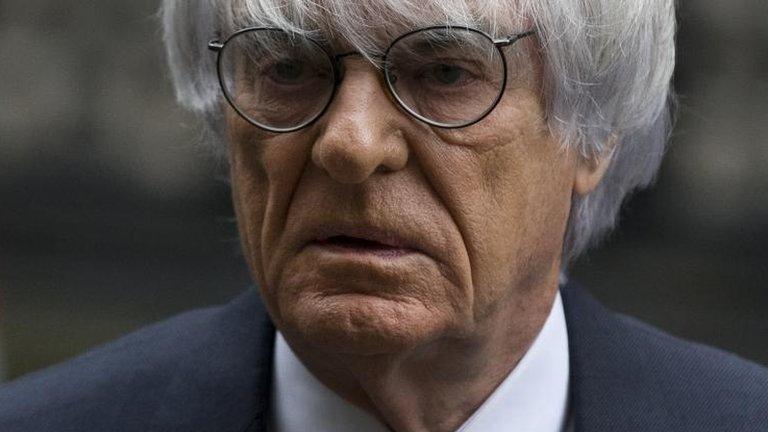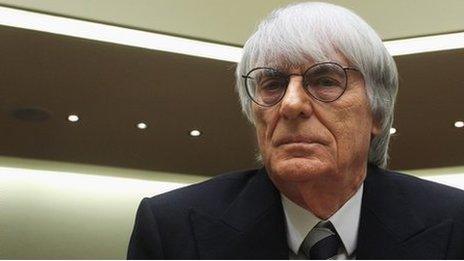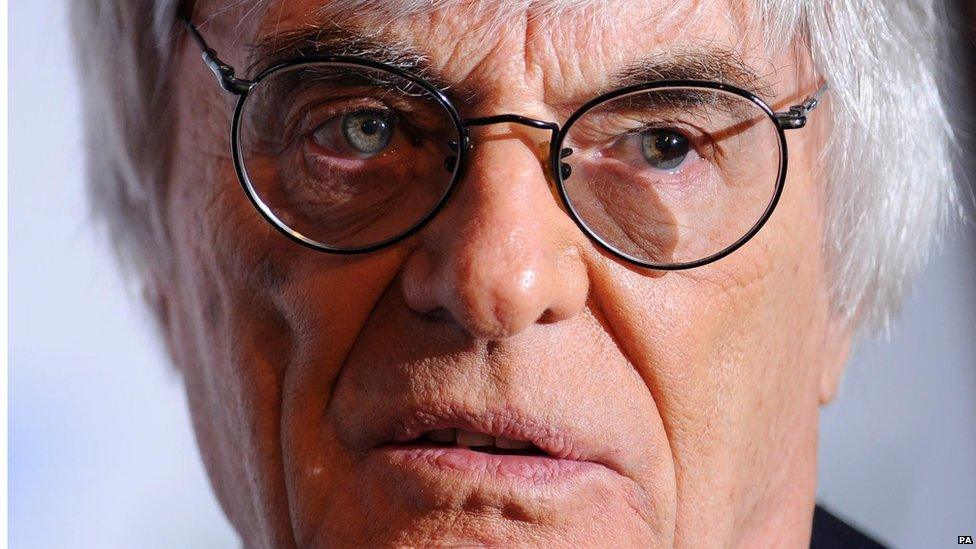F1 supremo Bernie Ecclestone now more vulnerable than ever
- Published

Bernie Ecclestone
Bernie Ecclestone might have won his High Court battle against the German media company Constantin Medien, but the 104-page judgment handed down has left the all-powerful boss of Formula 1 more vulnerable than ever before.
While dismissing the claim against Ecclestone, Mr Justice Newey concluded that the 83-year-old billionaire had paid a "bribe" as part of a "corrupt agreement" with the German banker Dr Gerhard Gribkowsky.
The judge said the payment of $44m (£26m) was to facilitate the sale of F1 to a buyer acceptable to Ecclestone.
Mr Justice Newey also concluded that Ecclestone was an unreliable and untruthful witness, and was unconvinced by claims that he was unable to recall events or details from the past because of his advanced age and tendency to fire off quick responses under questioning in court.
Ecclestone told Reuters that he was pleased the damages claim against him had been dismissed and he disagreed with what the judge had said.
"He's come up with an opinion, he thought I didn't tell the truth and I wasn't reliable. I was reliable because I turned up on time. I think I answered truthfully the questions I was asked," he said.
For the head of a sport which has become a global, multi-billion dollar business, this is damning and must seriously call into his question his ability to continue as the chief executive of F1.
But then Ecclestone is a great survivor and judging by his immediate response to the judgment, he is not going anywhere fast.
So if, as expected, Ecclestone remains in the driving seat, the key question coming out of the High Court decision is what will Mr Justice Newey's opinion mean for the far more serious criminal case Ecclestone is facing in Germany.
Here the F1 supremo is facing the far more daunting prospect of a stretch in jail if he is found guilty of making a corrupt payment to Dr Gribkowsky to smooth the way for the $1.7bn sale of the sport to the private equity group CVC in 2006. , external
The case now concluded in the High Court and the German trial due to get under way in the spring are essentially dealing with the same allegations.
Of course it does not necessarily follow that just because the English courts have concluded Ecclestone did pay a bribe that the German courts will follow suit.
Ecclestone says that to win the $140m dispute with Constantin Medien (who claimed they lost out on commission because Ecclestone sold to CVC below market value) he and his lawyers didn't have to show that the bribery claims were unfounded.
He adds that his legal team decided not to bring Dr Gribkowsky to the High Court to show his allegations are false. "When we get to Munich it will be a different case," he told the Financial Times.
Bernie Ecclestone's bizarre High Court entrance
He has also maintained that while he did pay the money to Dr Gribkowsky it was because he was being blackmailed by the banker.
Perhaps so. But Dr Gribkowsky has already been jailed for eight and a half years for his part in the alleged conspiracy with Ecclestone and has said that the $44m payment he received in relation to the sale to CVC was a bribe.
At the very least it is fair to conclude that Mr Justice Newey's opinion is anything but helpful to Ecclestone's case in Germany.
To make matters worse Ecclestone faces another criminal case in Switzerland which runs from the same set of allegations.
But unless F1 decides the High Court judgment is simply too damaging for Ecclestone to carry on in charge of the sport then it is the case in Germany that will really seal his fate.
- Attribution
- Published20 February 2014

- Published5 August 2014

- Attribution
- Published20 February 2014

- Published7 November 2013